“The retreat that all the trustees and team of Doctors in Distress were able to experience was magical. Using craft, in this case, whittling, allowed each person to reflect individually, to pause and to allow themselves to be in the moment. The group was then able to bring creative thoughts together for the benefit of the charity. This would not have been possible without the skilful facilitation of Will Beharrell and The Fathom Trust. The power was in using craft to enable recovery and then refocus. “
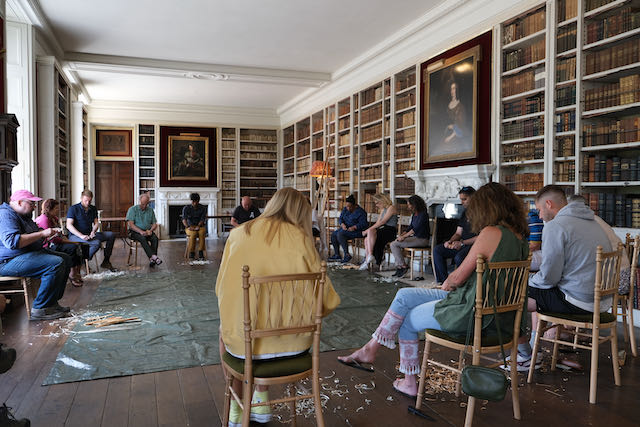
Anthony Ashley Cooper, The 3rd Earl of Shaftesbury (1671-1713)
We are excited to be working with the charity Doctors in Distress to help healthcare professionals struggling with mental illness and suicidality.
We were fortunate this week to be invited by the Earl and Countess of Shaftesbury to host a retreat at St. Giles House in Dorset.
The charity was started by Amandip Sidhu following the death of his brother, a consultant cardiologist, and is developing under the leadership of Dame Clare Gerada as Chair of Trustees, and Ann Paul as CEO. They have gathered, in a few short months, a formidable group of trustees and dedicated staff to address the issue of suicidality alongside the mental health and wellbeing of the medical workforce
Our purpose was to create a space where the team could rest and recover following a busy year. Set in 6000 acres of glorious Dorset countryside, the estate provided opportunities for walking, swimming, and reconnecting with nature.
We were incredibly fortunate to take over the old library for a whittling workshop with Barnaby Carder (aka ‘Barn The Spoon’) on the Saturday. Starting with a billet of alder, the group first learned various ways of holding their knife in order to create shavings, and progressed to making butter knives.
For most of the weekend, this group, which comprised senior leaders from politics, business, healthcare, and the media, was effervescent with discussion and debate. But such is the power of whittling, that a kind of silence descended on the room, as each person became engrossed with the shapes they were producing from each particular billet.
This embodied experience of learning a new craft was a wonderful way of drawing the group together, who were meeting together for the first time, but also of leading each individual into a creative frame of mind. This combination of group cohesion and individual expression created the conditions for a lively and productive strategy discussion in which each member of the group articulated their vision for the charity three years hence.
Our time together was enriched by the presence of writer and psychotherapist Mark Vernon. Mark is fast becoming an expert on the 3rd Earl of Shaftesbury and drew on the house’s unique heritage, including a statue of Anteros and an early 18th century portrait of the 3rd Earl, to furnish the group with insights and quotations from the most renowned Enlightenment philosopher of the Western world.
The mission of Doctors in Distress couldn’t be more important. The Fathom Trust, with its emphasis on the healing power of crafts, conservation, and contemplation, was honoured to have had the chance to get to know the charity trustees and team. We are looking forward to creating a network of reflective spaces together in the months to come to help healthcare professionals recover and to give healthcare leaders space to consider how to shape their working cultures so that all may flourish.
Dr Ananta Dave, Medical Director for an NHS trust, wrote a wonderful poem during the weekend which can be read here: https://www.doctors-in-distress.org.uk/news/a-song-of-silence-by-dr-ananta-dave
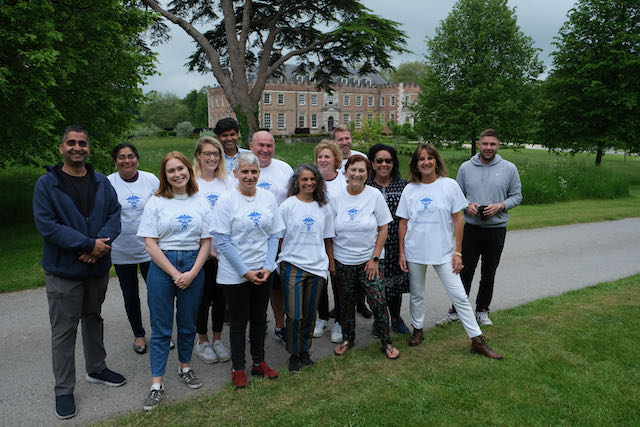
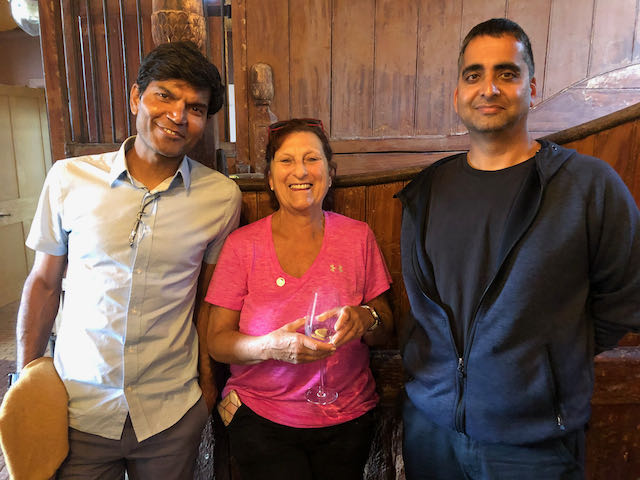
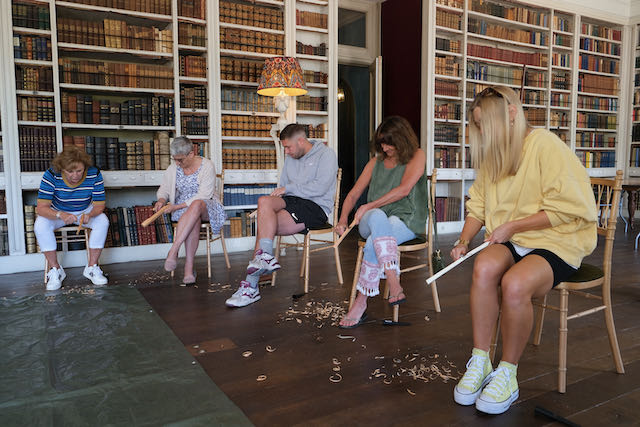
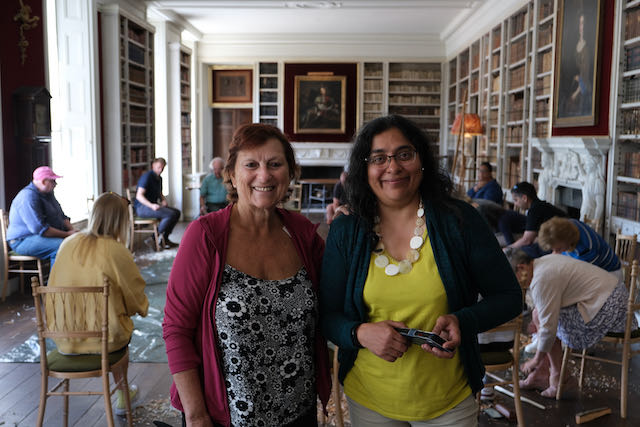
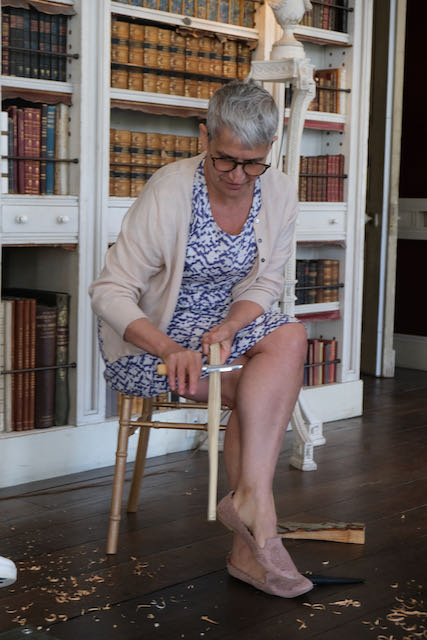
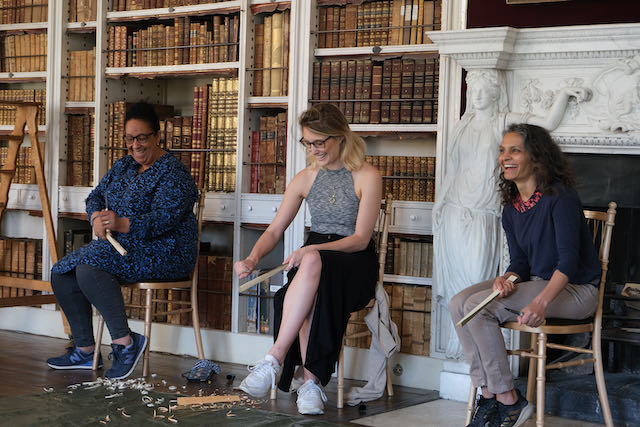
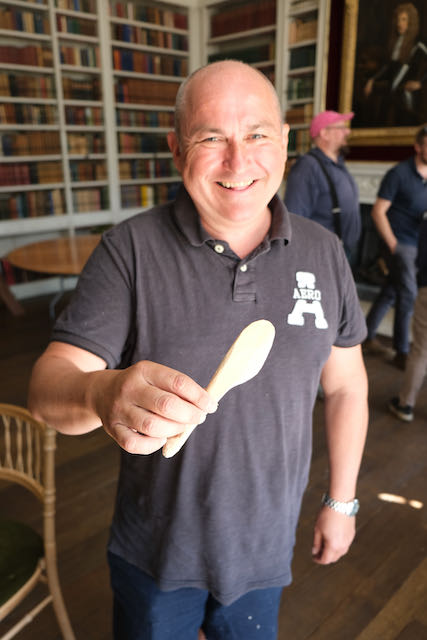
The time seemed to go by very quickly, as there was a feeling of being present.
Time changes when in a zone of playfulness.
Being a learner again was very lovely. It is also unusual to see young people engaging with something that’s not to do with machinery and what a pleasure that is. Also the beauty of doing something that we didn’t think we’d ever be able to do.
Not being in control and not imposing your will, but enjoying the journey, was valuable. It’s about listening and learning from the medium. You’re aiming for something but the individual person’s character will come out too.
There was a real sense of achievement, though we had low expectations. There was a sense of patience too, and how the time didn’t seem long, though it was 4 hours. We stuck at it and embraced it.
The activity could do a lot for those in the dark world of suicidality. The activity takes you out of it, and may allow you to step back and see more clearly. Also, being taken away from perfectionism and the stigma of not doing well.
It stills racing thoughts and makes you more centred.
There is not anyone who couldn’t say they haven’t made something. There is no sense of failure but rather a sense of positivity. It is rare to feel you have created something.
We are creaturely and those aspects are often neglected. Considering our relationship with nature is another side of it.
"I didn’t think that it would appeal to me but it was important to stay with the discomfort. I realised how powerful it is to focus on something different from your day to day world and let it lift your spirit. It was good doing something with a natural material that we take for granted, and to realise that I could make something that looked reasonably functional at the end of it."